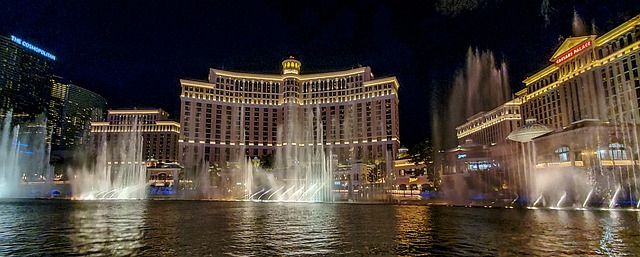
Check out initiatives to reduce the environmental footprint
Historically, casinos have been seen as large consumers of resources. The energy they require to light and air-condition their spaces, the intensive use of water and the generation of waste are enormous. However, growing environmental awareness is changing this perception. Although sustainable casinos are still rare, there are initiatives that are driving a greener industry. In addition, we cannot forget the growing trend of virtual platforms. We will analyze the strategies that seek to minimize environmental impact and promote more responsible operations in physical casinos.
The urgency of sustainability in casinos
Entertainment and tourism generate a large amount of waste and emissions, and casinos are no exception. From the giants of Las Vegas to floating casinos, their impact is considerable. But energy consumption is at the heart of the issue. Casinos operate 24 hours a day, require extensive lighting, electronic equipment, air conditioning and security systems. Water use is also significant, particularly in associated hotels and spas. Added to this is the plastic waste from single-use products, such as tokens or water bottles.
Faced with these challenges, some casinos are taking steps to reduce energy consumption, optimize water use and reduce waste.
Examples of sustainable casinos

MGM Resorts International
With the implementation of the “Green Advantage” program, the chain aims to reduce its carbon footprint and better manage water. Its CityCenter complex in Las Vegas is LEED certified, standing out for its energy-saving and water-recycling systems.
The Venetian Las Vegas:
This casino-hotel has installed solar panels, LED lighting and recycles more than 50% of its solid waste. In addition, it has invested in technologies to optimize water and energy consumption.
Crown Casino Melbourne:
In Australia, this casino has implemented renewable energy, energy efficiency improvements and recycling programs. It also engages its employees in green activities, promoting an internal culture of sustainability.
Innovations in sustainability
Casinos looking to reduce their environmental impact are adopting more efficient architectural designs. For example, high-efficiency glass that better regulates interior temperature and more effective ventilation systems. LED lighting has also been key to reducing energy consumption.
Regarding water, some casinos have implemented recycling systems, which is essential in areas with scarcity of this resource, such as Las Vegas.
Responsible gaming and sustainability

Sustainability also includes responsible gaming. A truly sustainable casino cares about its customers, preventing problem gambling and offering support. Thus, environmental and social responsibility go hand in hand, creating a more ethical business model.
Challenges and Opportunities
Sustainable practices remain limited, especially in small casinos or in markets with little regulation. However, consumer pressure and tax incentives are pushing more operators to follow this path. The challenge will be to combine the luxury experience with the reduction of environmental impact, which will require investments in technology and cultural changes in the industry.
Conclusion
Sustainable casinos are an emerging trend with the potential to transform the gaming industry. Through technological innovation, efficient design and a commitment to responsible gaming, some operators are proving that it is possible to manage their operations in a more ethical and responsible manner. With more awareness, more casinos are likely to adopt these practices and the gaming industry will move towards a more sustainable model.